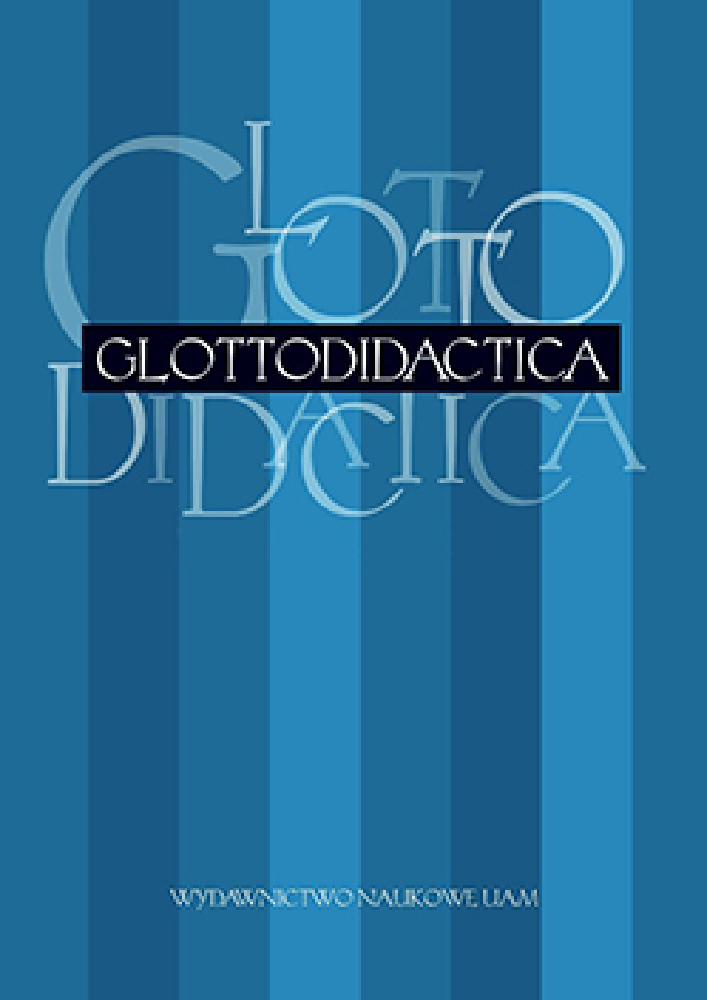Abstract
Task Based Learning / Teaching focuses on the action dimension of language use, i.e., various tasks performed every day that require cooperation with others and the mobilization of language. Language proves to be the most important instrument of action, even if the objective of this action is not necessarily linguistic. The pedagogical tasks used for language teaching for professional purposes illustrate the link between language and socio-professional action: the learning of the formal language system counts as much as the content of the domain of work. On these theoretical assumptions, the aim of this paper is to examine the degree of integration of linguistic and professional knowledge and skills into tasks designed for the teaching of business French. We will analyse the examples of pedagogical tasks in order to demonstrate to what extent they allow us to teach interdisciplinary content and foreign language.
References
Bronckart, J.-P. (2001). S’entendre pour agir et agir pour s’entendre. In: J. M. Baudouin / J. Friedrich (dir.). Théories de l’action et éducation (pp. 133–154). Bruxelles: De Boeck. DOI: https://doi.org/10.3917/dbu.baudo.2001.01.0133
Conseil de l’Europe (2001). Cadre Européen Commun de Référence pour les Langues. Apprendre, Enseigner, Évaluer. Paris: Didier.
De Terssac, G. (1996). Savoirs, compétences et travail. In: J. M. Barbier (dir.). Savoirs théoriques et savoirs d’action (pp. 223–248). Paris: PUF. DOI: https://doi.org/10.3917/puf.barbi.2011.01.0223
Devitt, S. (2002). Guide à l’usage des apprenants et des enseignants. In: J. L. M. Trim. (dir.). Cadre européen commun de référence pour les langues: apprendre, enseigner, évaluer. Guide pour les utilisateurs (pp. 83–116). Strasbourg: Conseil de l’Europe, Division des Politiques Linguistiques.
Halté, J. F. (1982). Apprendre autrement à l’école. Pratiques, 36, 5–23. DOI: https://doi.org/10.3406/prati.1982.1243
Lacoste, M. (2001). Peut-on travailler sans communiquer ? In: A. Borzeix / B. Fraenkel (dir.). Langage et travail (pp. 21–54). Paris: CNRS Éditions.
Mangiante, J.-M. / Parpette, Ch. (2004). Le Français sur Objectif Spécifique: de l’analyse des besoins à l’élaboration d’un cours. Paris: Hachette.
Narcy-Combes, J.-P. / Narcy-Combes, M.-F. (2007). La tâche, un moyen pour optimiser l’enseignement apprentissage de l’anglais aux spécialistes d’autres disciplines dans le contexte universitaire français. Le Français dans le Monde. Recherches et Applications, 42, 73–86.
Sowa, M. (2011). D’une activité pédagogique à l’activité professionnelle. Le cheminement vers la compétence. Lublin: TN KUL.
License
Copyright (c) 2020 Magdalena Sowa

This work is licensed under a Creative Commons Attribution-NoDerivatives 4.0 International License.
Authors
Authors of texts accepted for publication in Glottodidactica are required to complete, sign and return to the Editorial team’s office the Agreement for granting a royalty-free license to works with a commitment to grant a CC sub-license.
Under the agreement, the authors of the texts published in Glottodidactica grant Adam Mickiewicz University in Poznań a non-exclusive, royalty-free license and authorize the use of Attribution-NoDerivatives 4.0 International (CC BY-ND 4.0) Creative Commons sub-license.
The authors retain the right to the free disposal of the work.
Users
Interested Internet users are entitled to use works that have been published in Glottodidactica since 2016, under the following conditions:
▪ attribution – obligation to provide, together with the distributed work, information about the authorship, title, source (link to the original work, DOI) and the license itself.
▪ no derivatives – the work must be preserved in its original form. Without the author's consent, it is not possible to distribute the modified work in the form of translations, publications, etc.
Copyrights are reserved for all texts published before 2016.
Miscellaneous
Adam Mickiewicz University in Poznań retains the property right as a whole (layout, graphic form, title, cover design, logo etc.).
Privacy statement
The names and email addresses published on this journal site will be used exclusively for the purposes declared by this journal and cannot be used for any other purpose or by any other party.





